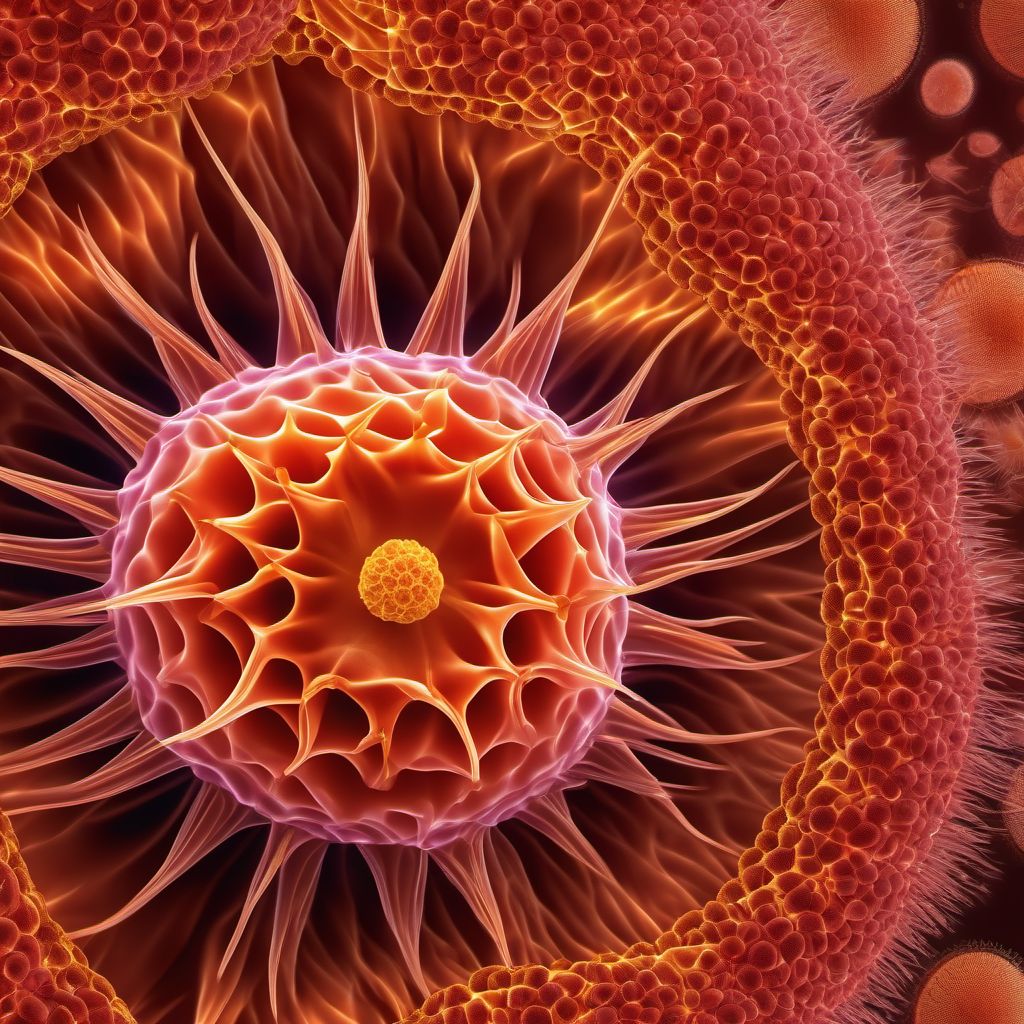
Tuberculous peripheral lymphadenopathy Save
ICD-10 code: A18.2
Chapter: Certain infectious and parasitic diseases
Tuberculous Peripheral Lymphadenopathy: Causes, Symptoms and Treatment
Tuberculous peripheral lymphadenopathy is a condition that occurs when the lymph nodes in the body become inflamed due to a bacterial infection called Mycobacterium tuberculosis. This condition commonly affects the lymph nodes in the neck, but it can also occur in other parts of the body.
Causes of Tuberculous Peripheral Lymphadenopathy
Tuberculous peripheral lymphadenopathy occurs when the body is infected with Mycobacterium tuberculosis. This bacterium is transmitted through the air and can enter the body when an infected person coughs or sneezes. Once the bacterium enters the body, it can travel to the lymph nodes and cause inflammation.
Symptoms of Tuberculous Peripheral Lymphadenopathy
The symptoms of tuberculous peripheral lymphadenopathy can vary depending on the severity of the infection. Some common symptoms include:
- Swollen lymph nodes
- Fever
- Night sweats
- Weight loss
- Fatigue
- Loss of appetite
If left untreated, tuberculous peripheral lymphadenopathy can lead to complications such as abscess formation and the spread of the infection to other parts of the body.
Treatment for Tuberculous Peripheral Lymphadenopathy
The treatment for tuberculous peripheral lymphadenopathy involves a combination of antibiotics. The antibiotics are used to kill the Mycobacterium tuberculosis bacterium and prevent the infection from spreading to other parts of the body.
In addition to antibiotics, other treatments may be necessary to manage the symptoms of tuberculous peripheral lymphadenopathy. For example, anti-inflammatory medications may be used to reduce swelling and fever. In severe cases, surgery may be necessary to remove the infected lymph nodes.
Prevention of Tuberculous Peripheral Lymphadenopathy
The best way to prevent tuberculous peripheral lymphadenopathy is to avoid contact with people who have tuberculosis. If you are in contact with someone who has tuberculosis, it is important to wear a mask and practice good hygiene to reduce your risk of infection.
In addition, getting vaccinated for tuberculosis can help prevent the infection from taking hold in your body. The tuberculosis vaccine is recommended for people who are at high risk of developing the infection, such as healthcare workers and people who live in areas where tuberculosis is common.
If you suspect that you may have tuberculous peripheral lymphadenopathy, it is important to see a doctor right away. Early treatment can help prevent complications and improve your chances of a full recovery.